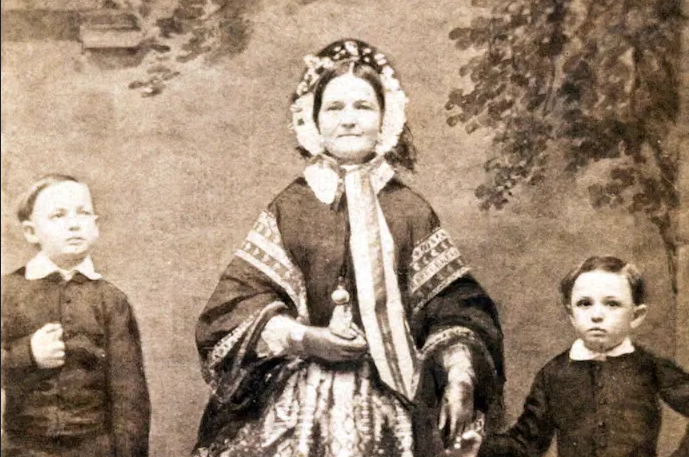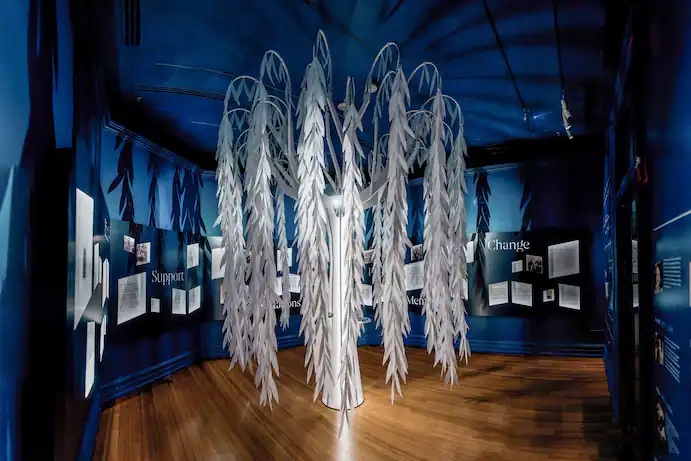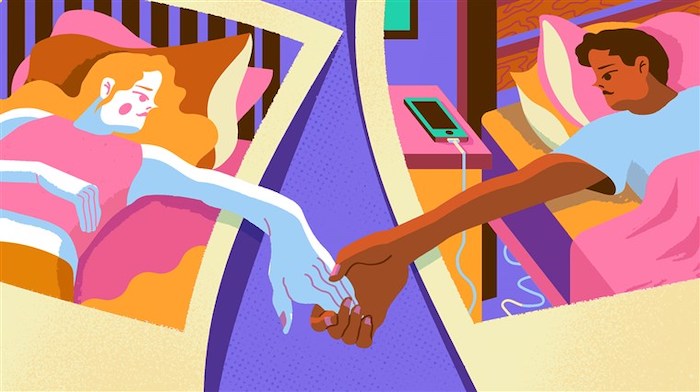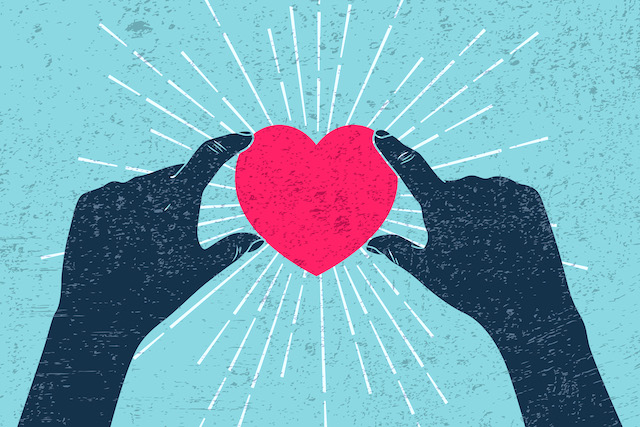Review of ‘Notes on Grief’ by Chimamanda Ngozi Adichie

Not all deaths in the time of covid are covid deaths. Even as we tally the fatalities resulting from the coronavirus — indicators of personal grief as well as national competence — we continue about the business of succumbing to non-pandemic maladies, deaths no less painful for their familiarity, grief no less wrenching for its disconnect from this plague upon us.
Novelist Chimamanda Ngozi Adichie experienced such a death last year, when her father, James Nwoye Adichie, a distinguished Nigerian academic, passed away because of complications from long-term kidney disease. In “Notes on Grief,” a slim, poignant reflection originating from a New Yorker essay of the same title, the author recounts her efforts to cope with her loss, to accept condolences, to carry out the inevitable rituals of death. “I want there to be a point,” she writes, but even looking for the point is so painful that she cannot fathom “the catastrophe of a direct, unswerving stare.” Grief is always hard to observe.
She writes of her father and his life and the void he leaves, only to find words wanting. With death, she explains, “you learn how much grief is about language, the failure of language and the grasping for language.” All the expressions of sympathy that come from her friends, well-intentioned interruptions of her pain, are inadequate, counterproductive, or they simply annoy. He is resting grates on Adichie in particular. “He could very well be resting in his room in our house in Abba,” the author complains. He is in a better place is not just cliched but presumptuous. “How would you know?” she demands. And when people emphasize that her father lived a long life (he died at 88), she takes little consolation. “Age is irrelevant in grief; at issue is not how old he was but how loved
Her own words have been little better, Adichie chastises herself, recalling her past condolences to grieving friends. Find peace in your memories, she would tell them, only now realizing that memories, rather than relief, produce “eloquent stabs of pain.” And when a friend reminds Adichie of the sentiment she expressed in one of her own novels — “Grief was the celebration of love, those who could feel real grief were lucky to have loved” — the author finds that the words, meant to console, felt “exquisitely painful.” The line is from “Half of a Yellow Sun,” published 15 years ago, back when it seemed she had all the time in the world.
Any one of us who has lost loved ones — even that euphemism feels deficient, for we have not lost anyone; we know too well what happened to them — can relate to Adichie’s anger and her compulsion to reshape it into guilt. She ponders ways she could have anticipated her father’s illness, steps she could have taken to fend off his deterioration, “to make it un-happen.” A brief respite in which she forgets his departure feels like a betrayal, Adichie admits, not only to him but to her relatives in Nigeria who were with him when he died, while she lives across the ocean in the United States. “Do I forget because I am not there?” she wonders. “I think so.” So Adichie seeks other ways to reaffirm their closeness: scouring her belongings for a family tree he once sketched for her, digging up his old letters. “There is an intense pathos to looking at his handwriting,” she realizes. It is as though in seeing his written words, she can again communicate with her father.
The pandemic’s unavoidable form of communication — the Zoom call — is ever present in “Notes on Grief,” as are other covid impositions. The book begins on a weekly family Zoom, with siblings dialing in and cracking jokes from England, the United States and Lagos, and the parents connecting from their home in Abba in southeastern Nigeria. (“Move your phone a bit, Daddy,” they have to tell him when only his forehead appears on the screen.) Her father had been feeling a little sick and sleeping poorly, she recalls, but he urged them not to worry. Three days later, he was gone. Their next Zoom call “is beyond surreal,” Adichie writes, “all of us weeping and weeping and weeping, in different parts of the world, looking in disbelief at the father we adore now lying still on a hospital bed.” And there are yet more Zooms in which they must discuss arrangements for the funeral and religious services. The logistics of death in a pandemic can feel overwhelming. Will Nigeria’s airports be open and stay open? How to ensure a covid-compliant Mass? “I come to dread the Zoom calls,” Adichie writes. “The family shape is changed forever, and nothing makes it more poignant than to slide on my phone screen and no longer see the square with the word ‘Dad.’ ”
That missing Dad emerges as a wise, kind, thoughtful and understanding presence throughout “Notes on Grief” — a devoted teacher, proud father and supportive husband, a man who instilled in the author the confidence to admit she did not know something, who taught her never to fear the disapproval of strangers. “He infused meaning into the simplest of descriptions: a good man, a good father.” I have no reason to imagine he was anything less than this father of which one might dream, yet even she realizes that grief can reshape perceptions. “No, I am not imagining it,” she writes in almost defiant affirmation. “Yes, my father truly was lovely
The loveliest writing in this reflection, however, is not about James Nwoye Adichie, but about the anguish and longing his death produces in those who suffer his absence most acutely. “Is this what shock means, that the air turns to glue?” Adichie asks, capturing her physical response to the news. “How is it that the world keeps going, breathing in and out unchanged, while in my soul there is a permanent scattering?” With death, we expect the world to mourn with us, and when it doesn’t, it can feel like an insult.
In the traditions of Nigeria’s Igbo people, Adichie explains, death involves a settling of accounts. This “clearance” requires that any outstanding dues to the village, the clan or other local associations be paid in full, otherwise the funeral will be boycotted. The custom shows how “forcefully communitarian” the culture remains, she writes. The author does not want to care about such things, but she must, because such things mattered to her father.
And it is in community that solace is possible. Sometimes, upon the death of a loved one, friends we had never met tell us stories we had never known. In death, those we love become more than we understood, more than we can ever remember alone. Adichie appreciates this power. She had always meant to interview her father at length, to record him as he retold and recounted the tales of his childhood, his parents and his grandparents. “I kept planning to, thinking we had time,” she laments. But others can help fill in those spots. “Concrete and sincere memories from those who knew him comfort the most,” Adichie writes. This is another way to settle accounts, one in which the community repays you many times over.
“Part of grief’s tyranny is that it robs you of remembering the things that matter,” the author writes, and I wonder if, in a deadly pandemic, such theft is even more prevalent. Yes, not all deaths in the time of covid are covid deaths, but not all covid deaths should be remembered solely for the crisis that brought them on, one more statistic in a global tragedy that we all just want to get past. They deserve more respect than that. Collective exhaustion should not rob them of individual grief.
Complete Article ↪HERE↩!









